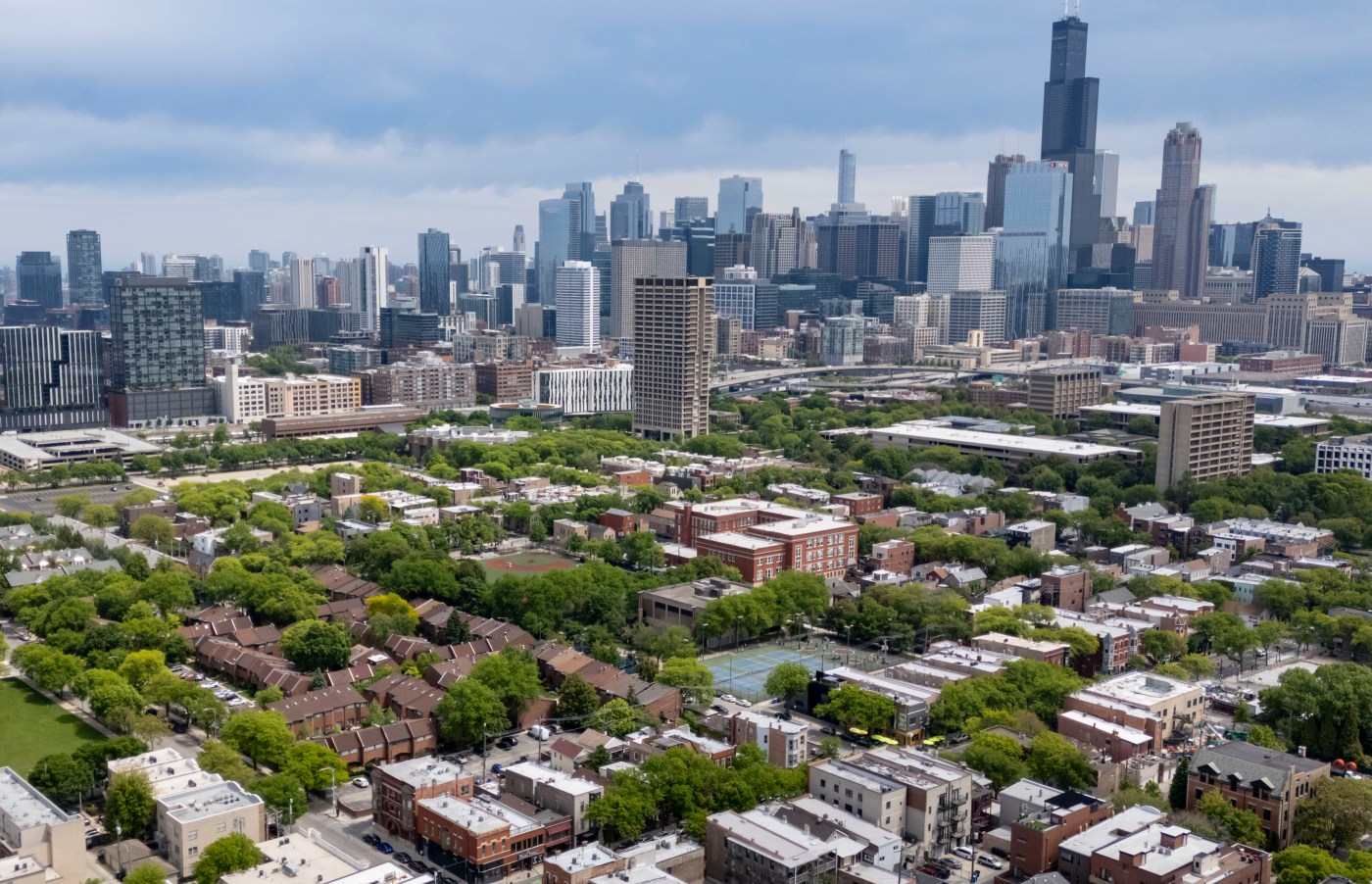Business
Chicago Rents Surge as Construction Struggles to Keep Pace

Rents in Chicago are rising at an alarming rate, outpacing other major metropolitan areas. According to a recent report from Zillow, rental prices in the Chicago metro area increased by 6% over the past year, with some suburbs witnessing even steeper climbs of over 10%. The surge comes despite a relatively stable population, indicating strong demand for housing that is not being met by construction efforts.
The average monthly rent for an apartment in Chicago now stands at an eye-watering $2,213, reflecting an increase of about $138 from the previous year and over $680 compared to a decade ago. To afford this typical rent, a household would need to earn approximately $88,500 annually.
Construction Lagging Behind Demand
While many cities have successfully aligned construction with demand, Chicago is falling behind. Builders in the region are struggling to keep pace, resulting in a tighter rental market where prices continue to climb. The 2024 data indicates that Chicago-area municipalities issued just 4.6 housing permits per 1,000 existing homes, which is significantly lower than the national average of 10.1 and the lowest among major U.S. metros, as reported by Construction Coverage.
The challenges in building new residential units stem from stringent regulations and zoning laws. Orphe Divounguy, a senior economist at Zillow, points out that cities with fewer building restrictions have managed to maintain affordability better. For instance, even as rents have increased in Chicago, they have decreased in Denver, where developers constructed around 20,000 new apartments last year.
Impact on Future Residents
Despite Chicago’s historical appeal to recent graduates and young professionals, the rising costs may deter potential newcomers. As remote work expands opportunities for flexible living arrangements, the city’s rental landscape could become less attractive. Divounguy notes that sustained trends in rising rents could lead to diminished interest from graduates of nearby universities, particularly those in the Big Ten.
While rent in Chicago remains more affordable than in cities like New York, where housing costs consume 41% of household budgets compared to 27% in Chicago, the growing rental prices warrant attention. Although the city is not likely to lose its reputation as a livable metro overnight, the current trajectory raises significant concerns.
Addressing the underlying issues of supply and demand is crucial for Chicago’s housing market. Without significant increases in residential construction, the city risks becoming increasingly unaffordable for both current and future residents. The call to action is clear: Chicago needs to build more housing to ensure that it can continue to attract and retain a vibrant population.
-

 Science2 weeks ago
Science2 weeks agoIROS 2025 to Showcase Cutting-Edge Robotics Innovations in China
-

 Politics2 weeks ago
Politics2 weeks agoJudge Considers Dismissal of Chelsea Housing Case Citing AI Flaws
-

 World2 weeks ago
World2 weeks agoBravo Company Veterans Honored with Bronze Medals After 56 Years
-

 Top Stories2 weeks ago
Top Stories2 weeks agoIndonesia Suspends 27,000 Bank Accounts in Online Gambling Crackdown
-

 Lifestyle2 weeks ago
Lifestyle2 weeks agoStone Island’s Logo Worn by Extremists Sparks Brand Dilemma
-

 Health2 weeks ago
Health2 weeks agoStartup Liberate Bio Secures $31 Million for Next-Gen Therapies
-

 Sports2 weeks ago
Sports2 weeks agoMel Kiper Jr. Reveals Top 25 Prospects for 2026 NFL Draft
-

 Health2 weeks ago
Health2 weeks agoTop Hyaluronic Acid Serums for Radiant Skin in 2025
-

 World2 weeks ago
World2 weeks agoHoneywell Predicts Record Demand for Business Jets Over Next Decade
-

 Politics2 weeks ago
Politics2 weeks agoNew Jersey Voters Urged to Register Ahead of November Election
-

 Lifestyle2 weeks ago
Lifestyle2 weeks agoMary Morgan Jackson Crowned Little Miss National Peanut Festival 2025
-

 Sports2 weeks ago
Sports2 weeks agoYamamoto’s Mastery Leads Dodgers to 5-1 Victory in NLCS Game 2







